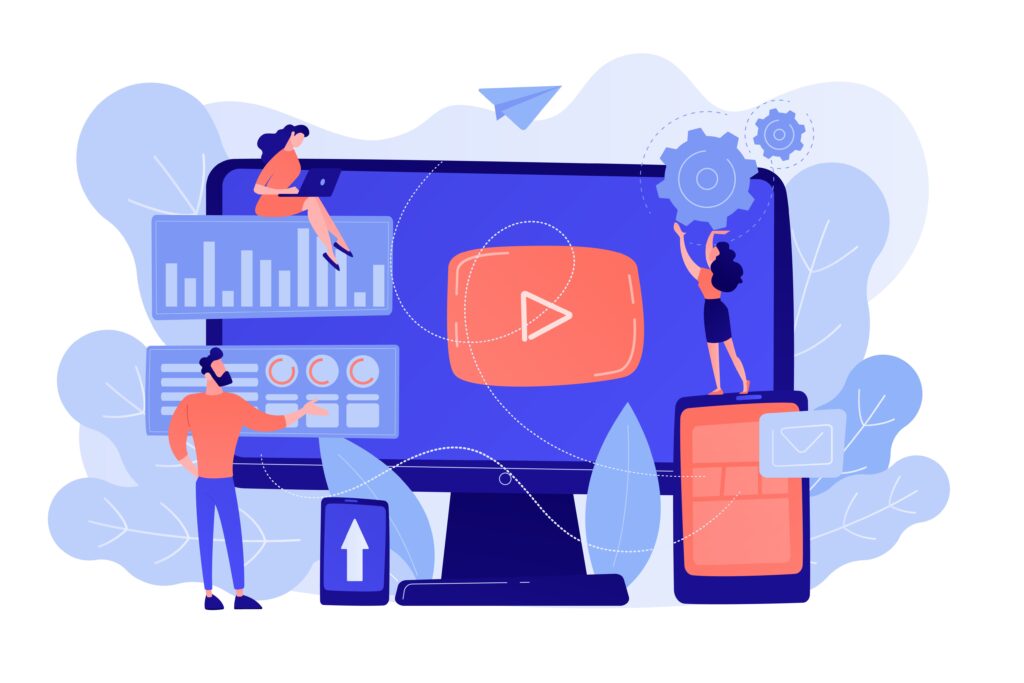Lead generation refers to the process of specifying, drawing, then producing the potential customers for your business’s items or services. Essentially, it involves generating interest in what a business has to offer and nurturing that interest until the prospect is ready to become a customer.
Lead generation is an important part of any marketing strategy and can take many forms, from advertising campaigns to content marketing to networking events.
Goal Of Lead Generation
The goal of lead generation is to identify potential customers who have shown some level of interest in a company’s products or services, and then to nurture that interest until the prospect is ready to make a purchase.
This process can take many forms, depending on the type of business and the target audience.
For example, a B2B (business-to-business) company might focus on generating leads by attending trade shows and networking events, while a B2C (business-to-consumer) company might use social media marketing and email campaigns to reach potential customers.
Lead Generation Techniques

Lead generation is an essential part of the sales process, as it provides a pipeline of potential customers for a business to work with. By generating leads, a business can increase its chances of making sales and growing its customer base.
However, lead generation is not just about generating as many leads as possible – it’s about generating quality leads that are more likely to convert into customers.
There are many different techniques and strategies that businesses can use to generate leads. Some of the most popular include:
1. Content Marketing
Content marketing is the process of creating valuable and informative content that is designed to attract and engage potential customers.
This can include blog posts, videos, social media updates, infographics, and more. By providing valuable information to potential customers, businesses can establish themselves as experts in their field and build trust with their audience.
2. Pay-Per-Click Advertising
Pay-per-click (PPC) advertising is a type of online advertising where businesses pay each time someone clicks on one of their ads.
This can be an effective way to generate leads, as businesses can target specific keywords and demographics to reach their ideal audience.
3. Social Media Marketing
Social media marketing involves using social media platforms like Facebook, Twitter, and LinkedIn to connect with potential customers.
By sharing content, engaging with followers, and running targeted ads, then lead generation and building relationships with their audience.
4. Search Engine Optimization
Search engine optimization (SEO) is the process of optimizing a website and its content to rank higher in search engine results pages (SERPs).
By appearing at the top of search results for relevant keywords, businesses can attract more organic traffic and generate more leads.
5. Email Marketing
Email marketing for lead generation involves sending targeted emails to potential customers. By segmenting email lists and sending personalized messages, businesses can build relationships with their audience and generate leads.
6. Events And Trade Shows
Attending events and trade shows can be an effective way to generate leads and build relationships with multiple customers. By meeting face-to-face with potential customers, businesses establish charge and display the value of their products or services.
7. Referral Marketing
Referral marketing involves incentivizing existing customers to refer their friends and family to a business. By offering rewards or discounts for referrals, businesses can generate new leads and build a loyal customer base.
8. Webinars And Demos
Webinars and demos are a great way to showcase a product or service and generate leads. By providing valuable information and demonstrating the value of their products or services, businesses can attract potential customers and build trust with their audience.
Advantages Of Lead Generation
Lead generation refers to the process of simply identifying and then attracting potential customers or leads for a business and aiming to convert them into paying customers. There are several advantages of lead generation for businesses:
1. Increased Sales And Revenue
Lead generation helps businesses generate a steady stream of qualified leads. By targeting individuals or businesses who have shown interest in the products or services offered, businesses have a higher chance of converting those leads into paying customers. More customers mean increased sales and revenue for the business.
2. Targeted Marketing
Lead generation allows businesses to focus their marketing efforts on specific target audiences. By understanding the needs, preferences, and demographics of potential customers, businesses can tailor their marketing messages and strategies to effectively reach and engage with the right audience.
This targeted approach increases the likelihood of attracting high-quality leads who are more likely to convert into customers.
3. Cost-Effective
Compared to traditional outbound marketing methods, such as print advertising or cold calling, lead generation can be a cost-effective approach. Businesses can leverage various online marketing channels, such as content marketing, social media marketing, email marketing, and search engine optimization, to attract and nurture leads.
These digital marketing tactics often have a lower cost per lead compared to traditional marketing methods.
4. Relationship Building
The lead generation process allows businesses to build relationships with potential customers from the early stages of their buying journey. By providing valuable information, resources, and personalized experiences, businesses can establish trust and credibility with leads.
Building a relationship with leads increases the likelihood of converting them into loyal customers who will not only make repeat purchases but also refer others to the business.
5. Data Collection And Market Insights
Lead generation provides an opportunity to collect valuable data about potential customers. Businesses can gather information such as contact details, demographics, interests, and preferences through lead capture forms or interactions with leads.
This data can be used to better understand the target audience, improve marketing strategies, personalize communication, and make informed business decisions based on market insights.
6. Long-Term Business Growth
Lead generation is not only about acquiring immediate customers but also about building a pipeline of potential customers for ongoing business growth. By consistently generating and nurturing leads, businesses can create a sustainable flow of opportunities, reducing reliance on ad-hoc sales efforts.
A robust lead generation system helps businesses maintain a steady stream of leads, ensuring long-term growth and stability.
7. Competitive Advantage
Effective lead-generation strategies give businesses a competitive advantage in the market. By implementing innovative and targeted lead-generation tactics, businesses can stand out from their competitors, attract a larger share of the market, and position themselves as industry leaders.
This advantage translates into increased market share, brand recognition, and customer loyalty.
Conclusion
Lead generation is the process of attracting potential customers and collecting their contact information for the purpose of nurturing them into paying customers. By focusing on high-quality leads that are more likely to convert, businesses can maximize their return on investment and grow their customer base over time.
There are many strategies for generating leads, including content marketing, social media marketing, search engine optimization, email marketing, paid advertising, referral marketing, events and trade shows, lead magnets, and chatbots.
The key is to test and optimize your strategies over time to focus on the tactics that are delivering the best results for your business.
By investing in effective lead generation strategies, businesses can build strong relationships with their audience, increase their visibility and credibility, and ultimately grow their revenue and profits.
Read Also
- What Is Guest Posting?
- What Is Blogger Outreach? How To Do Blogger Outreach?
- What Is Link Juice In SEO?
- What is Link building?




